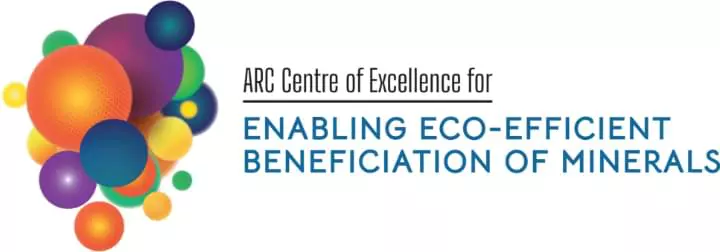COEMinerals is transforming mineral processing for Australia’s future

The ARC Centre of Excellence for Enabling Eco-Efficient Beneficiation of Minerals (COEMinerals) is a national research centre, funded by the Australian Government through the Australian Research Council Centres of Excellence funding scheme. In October 2019 COEMinerals was awarded $35M by the Australian Government through the Australian Research Council (ARC) Centres of Excellence funding scheme, and the Centre officially commenced on 29th July 2020.
The Centre’s diverse scientific team is addressing key industry and environmental challenges associated with mineral processing.
Minerals are a finite resource and many are becoming harder to recover against a backdrop of growing demand for metals to enable cleaner energy solutions as well as medical and other technologies and infrastructure. The Centre’s science-based, innovative approaches and inventions are resulting in higher minerals (metal) recovery, reduced environmental impact, and lower energy and water consumption during mineral processing.
The Centre comprises 8 Australian universities:
- The University of Newcastle (administering organisation)
- Curtin University
- Deakin University
- Monash University
- The University of Melbourne
- The University of Queensland
- University of New South Wales
- Adelaide University
COEMinerals is addressing previously unsolved problems, including finding effective ways to recover Rare Earth Minerals (REM) by taking entirely new approaches that include computational chemistry, advanced synthetic approaches and biotechnology. (REM are fundamental to permanent magnets (as used in wind turbine generators and in the motors that power electric vehicles.)
The Centre is helping to establish a new generation of scientists and research leaders in minerals beneficiation, equipping members to address contemporary sector challenges. Centre members work closely with local and international industry, institutions and other experts to gain on-site experience, research feedback and to test, trial and commercialise new technologies and techniques with a view to advancing energy and water productivity in the mining sector; driving towards the ‘zero-emission mine’ and reducing loss of high value metals during mineral processing.
The Centre aims to transform the minerals sector by:
Reducing energy and water use during minerals processing (beneficiation)
Our stretch goal is to double energy and water productivity in the mining sector by 2030, maintaining the drive towards the ‘zero- emission mine’
Increasing mineral recovery during minerals processing
Our stretch goal is to reduce loss of high value metals during minerals processing by 90%, increasing the concentration of recovered products used in metals refining
Training a New Generation
Our goal is to deliver exceptional educational experiences that enable, up-skill and empower a new generation of Research, Science, Technology, Engineering and Mathematics (STEM) and minerals sector leaders

